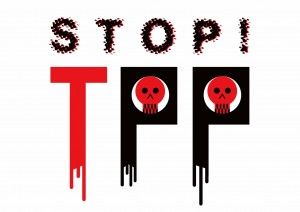“Punting the Pundits” is an Open Thread. It is a selection of editorials and opinions from around the news medium and the internet blogs. The intent is to provide a forum for your reactions and opinions, not just to the opinions presented, but to what ever you find important.
Thanks to ek hornbeck, click on the link and you can access all the past “Punting the Pundits”.
Wednesday is Ladies’ Day
Follow us on Twitter @StarsHollowGzt
Katrina vanden Heuvel: Ducking the fundamental issues
“We think ‘we’re all in this together’ is a better philosophy than ‘you’re on your own.'” Not surprisingly, former president Bill Clinton best summarized the choice Americans face this fall. And now that all the staging, balloons and drone of both conventions are behind us, the choice this November is clear – but so too are the limits of this debate.
Nowhere is the polarization of the parties clearer than on social issues. The Democrats in Charlotte were unabashed cultural warriors, making women’s right to choose, the right to marry whomever you love, immigration reform and an embrace of the Dream Act kids a central theme. And the Republican right turned the platform into a bludgeon in these alley fights. Mitt Romney appeared to be nervously looking for escape routes, but his running mate, Rep. Paul Ryan, has too long an assault record on these issues for him to slip away.
Michelle Chen: The Democrats’ Missed Opportunity
In failing to link immigrant rights and women’s rights, DNC speakers overlooked how injustices interlock
Last week, two issues highlighted at the Democratic National Convention represented a notable departure from the talk of jobs and economic growth. There was a classic striving immigrant narrative, embodied in the poetic if oversimplified family story of San Antonio Mayor Julian Castro. And there was a passionate defense of reproductive rights delivered by Sandra Fluke, who famously incurred ultra-conservative wrath for speaking out on contraceptive access. Both speeches showed the double-edged power of political storytelling: to inspire while masking the deeper issues that the mainstream political realm deftly obscures every four years.
Pivoting to Latino and women voters, the Democrats were capitalizing on ideological divisions in Washington on reproductive choice and immigration. But while the party repackaged those issues into slickly marketed talking points, the messaging spoke to messier unrest at the grassroots. Responding to years of grassroots pressure (from the sit-ins staged by so-called Dream Activists to the bold protest-on-wheels of the Undocubus, which rolled defiantly outside the convention), Obama has offered temporary reprieve to undocumented youth and promised to ease mass deportations for many immigrants with clean records. Meanwhile, the White House has cautiously pushed back against right-wing assaults on women’s health in the Affordable Care Act. But the response to the war of attrition on women’s rights comes amid rising frustration among pro-choice advocates who’ve witnessed Democrats’ repeated capitulations to anti-choice forces that have monopolized the abortion debate.
In stops all around the country, the Caravan for Peace has found that convincing people that the war on drugs is destructive and wasteful is not the problem. The polls show the public came to this conclusion long ago and now close to a majority favor what used to be considered “radical” solutions like legalizing and regulating marijuana. Although most people weren’t aware of the impact of the violence in Mexico, it’s immediately obvious to them that the drug war-trying to block supply in places like Mexico and stop consumption by criminalizing drugs in the U.S.- is not working. Anywhere.
The question then is: If a public consensus on the failure of the drug war, why hasn’t anything changed?
Why does the U.S. government continue to send millions of tax dollars to cities to fight the drug war, as they close down schools for lack of funds? Why does it waste more millions financing a bloody war in Mexico? Why does the Mexican government continue to pay the economic and political cost of a disastrous and destabilizing war? The U.S. has spent 2 billion dollars on the Mexican drug war in the past five years, mostly through the Merida Initiative and the Mexican government has spent at least four times that much.
To answer these questions, we have to look behind the scenes of the drug war. There we find that this disastrous policy has some powerful promoters.
Nisha Swinton: A Crooked Proposition: Toxic Tar Sands Oil May Find its Way to New England
This past year saw the highly visible airing of concerns surrounding the Keystone XL (KXL) pipeline project. A broad group of citizens opposed KXL, citing the climate change impacts of extracting and transporting Canadian tar sands oil and the (not unlikely) possibility of a toxic tar sands oil spill over the environmentally sensitive Sand Hills region of Nebraska or above the Ogallala aquifer, a critical source of drinking water for the Great Plains.
In at least a temporary victory for this broad group of concerned citizens, President Obama punted Keystone’s approval. Yet, tar sands oil remains a threat to communities and essential resources, not just along the proposed path of KXL, but in other parts of the country as well. There is reason to believe that New England is especially at risk.
Valerie Strauss: The Real Problem with Rahm’s School Reforms in Chicago
Chicago Mayor Rahm Emanuel has been pushing a school reform agenda backed by the Obama administration that is at the center of the strike that the Chicago Teachers Union is now waging in the third largest school district in the country.
This is not about whether or not you think the union should have called a strike as it did on Monday, but rather about the central problem with the reforms that Emanuel has been advocating: There’s no real proof that they systemically work, and in some cases, there is strong evidence that they may be harmful.
The reforms championed by Emanuel, a former chief of staff to President Obama, have been pushed by Obama’s education secretary, Arne Duncan, and implemented in a number of states.
Here are some things you should know about some of the major issues [..]

 Since 2007 when George W. Bush lurked in the Oval Office, the United States has been in secret negotiations to cut a trade agreement with several Pacific rim countries called the Trans-Pacific Partnership (TPP) Agreement. Those talks continued under President Barack Obama. I’ve written two articles,
Since 2007 when George W. Bush lurked in the Oval Office, the United States has been in secret negotiations to cut a trade agreement with several Pacific rim countries called the Trans-Pacific Partnership (TPP) Agreement. Those talks continued under President Barack Obama. I’ve written two articles,  Many of us who doubted the
Many of us who doubted the
Recent Comments